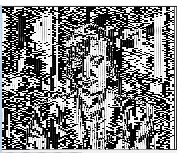Tool/software: Code Composer Studio
Hi,
We are developing a simple kernel (Sobel) and optimizing on DSP. We have taken reference from C66x Sobel code but after processing we are not getting expected result.
Could anyone help me to find the problem in code?
Thanks
Vikasdsp_sobel_kernel.rar
attaching the project for reference


